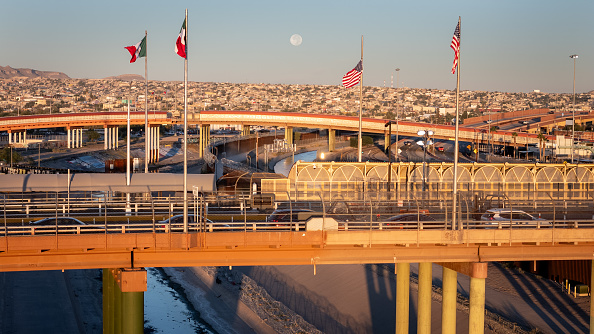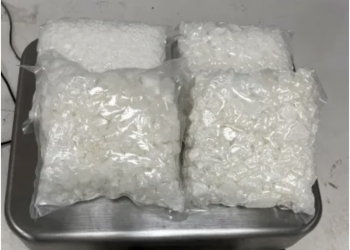MEXICO CITY — In a bid to ease mounting tensions with the United States, Mexico announced Friday it will promptly release water to Texas farmers, following renewed threats from former President Donald Trump to impose tariffs over treaty violations.
The decision comes amid growing pressure on Mexico to meet its obligations under a decades-old water-sharing agreement. During a press briefing, President Claudia Sheinbaum confirmed that a formal proposal had been submitted to U.S. officials and reaffirmed Mexico’s intent to fulfill the 1944 treaty governing water distribution from the Rio Grande.
Under the bilateral pact, Mexico is required to deliver 1.75 million acre-feet of water to the U.S. every five years. With the current cycle ending in October, only about 30% of that total has been delivered, according to the International Boundary and Water Commission.
“For Texas farmers who are in need of water, there will be an immediate release of several million cubic meters, based on current water levels in the Rio Grande,” Sheinbaum told reporters.
Her statement comes amid bipartisan criticism from Texas lawmakers, who argue that delayed deliveries are harming border-region agriculture. On Thursday, Trump weighed in, accusing Mexico of damaging U.S. farmers and threatening economic retaliation.
“I will not allow Mexico to violate our treaties or hurt our Texas farmers,” Trump said. He cited his recent decision to suspend U.S. water shipments to Tijuana as leverage to enforce compliance with the 1944 accord.
Sheinbaum attributed Mexico’s shortfall to prolonged drought conditions but insisted her government is acting in good faith and working toward a resolution “within days.”
On Friday, Agriculture Minister Julio Berdegué said he had spoken with U.S. Agriculture Secretary Brooke Rollins and Deputy Secretary of State Christopher Landau about the treaty and water management strategies for northern Mexican states including Chihuahua, Tamaulipas, and Baja California.
Tensions escalated last month when the Trump administration denied Mexico’s request for additional water from the Colorado River—marking the first such rejection since the treaty’s inception more than 80 years ago.
The U.S. State Department defended the move, citing Mexico’s ongoing delivery deficits. “These continued shortfalls are severely impacting American agriculture, particularly in the Rio Grande Valley,” the department said in a statement.
While Sheinbaum did not disclose the exact volume of the upcoming release, her administration may face political headwinds at home. Northern Mexican states, increasingly protective of their water supplies, are expected to resist a recent amendment to the treaty that grants the federal government expanded authority to redirect water to meet international obligations.






